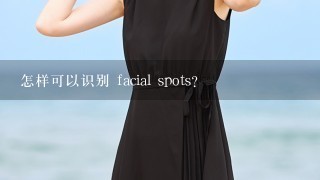怎样可以识别 facial spots?

Step 1: Observe the overall skin tone.
- Facial spots often appear darker than the surrounding skin tone.
- They can be more pronounced on certain skin tones, such as olive or dark skin.
Step 2: Look for patterns and shapes.
- Facial spots can appear in various patterns, including:
- Circles: These are the most common type of spot and are usually round or oval in shape.
- Triangles: These spots are usually smaller and more pointed.
- Stars: These spots have multiple points and are often arranged in a star-like pattern.
- Other shapes: Spots can also appear in other shapes, such as squares, ovals, or hexagons.
Step 3: Consider the size and distribution of the spots.
- Facial spots that are:
- Small and clustered (less than 5 mm in diameter) are likely sebaceous cysts.
- Larger and more scattered are likely benign or malignant.
- Symmetric in shape and distribution are more likely to be benign.
Step 4: Look for other symptoms.
- Facial spots that are accompanied by other symptoms, such as redness, swelling, pain, or discharge, may be a sign of a more serious condition.
Step 5: Consult a dermatologist or healthcare professional.
- If you have concerns about a facial spot, it's important to consult a dermatologist or healthcare professional for proper diagnosis and treatment.






































































